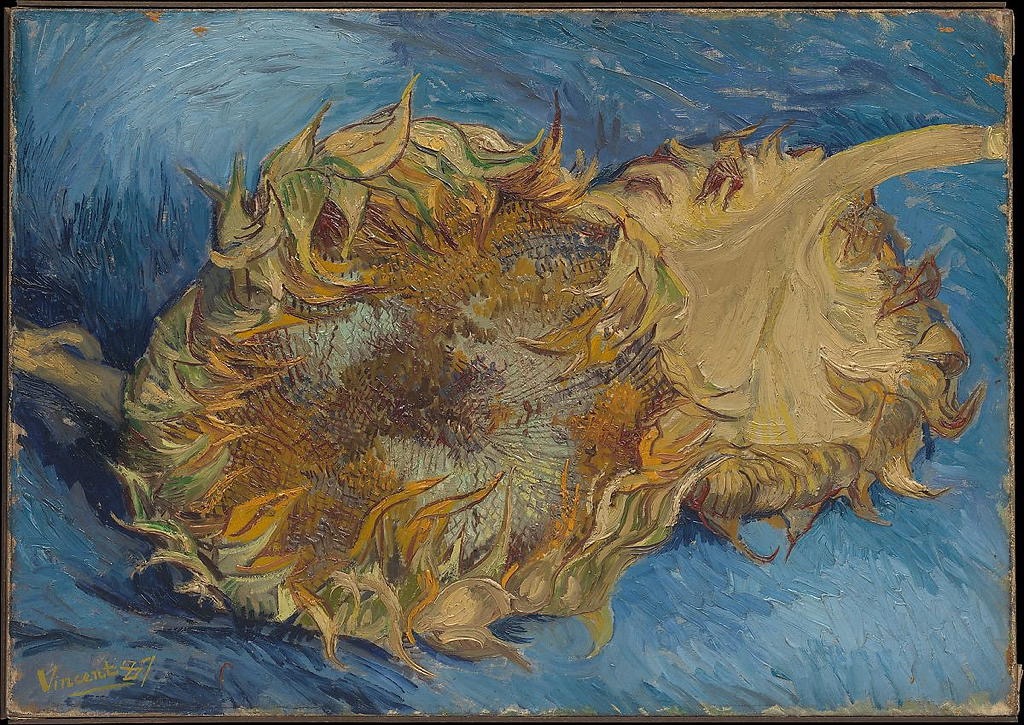Muddling

Vincent van Gogh: Sunflowers (1887)
" … which, of course, we ain't."
Let's consider looking at the Covid-19 pandemic as if it were one of those psychological instruments intended to provide feedback about who we really are. I know, those instruments might be the most widely misused and misinterpreted forms of self-discovery, but even this fact might better qualify them for this purpose, for this use. We don't usually read the instructions, anyway, but figure we might just as well muddle through. Muddling might be our primary means of engaging. Even when we have access to concise and accurate information, we tend to ignore that in favor of gut feel or intuition. We can consequently be fairly certain that those with their fingers on nuclear triggers have also not really read the instructions, justifying that decision with a belief that they'd never need to pull it. I mean, how hard could it be to destroy all humanity? Nobody's gonna be left to write that history. ©2021 by David A. Schmaltz - all rights reserved
We seem fatalistic, as if learning better might actually kill us or be more dangerous than remaining uninformed or becoming ill. We try to avoid making informed choices, favoring more passionately uninformed ones, especially those amounting to rumors. We take what a friend or trusted colleague insists on face value and tend to discount any true expert as an out-of-touch egghead or a profiteer. We hear what we want to hear and believe what we want to believe. We're skeptical bordering on cynical. We seem to really believe in vast conspiracies even when those engaging in them seem especially incapable of coordinating anything. We rely upon an imbedded misinformation infrastructure which sees itself as some kind of savior. Their charter, self-bestowed, amounts to countering whatever the perceived opponent's message. If a Democrat comments that the sky seems blue, the misinformation system simply must insist that this statement demonstrates just how clueless the typical Democrat is.
We act as if we're smarter, which has always been a reliable tell that we really feel as if we're not. We all know that we're doing this and yet we persist as if the act were really working, as if anyone really believed it. No-one does and few seem capable of breaking the trance. The most common sensical suggestions get savaged as infringements upon imaginary rights and we take umbrage when another attempts to do us a solid. We insist that we're not snowflakes, another reliable tell that we feel we're on the verge of melting. We will not take our medicine. We will not abide by common sense mandates. We make up stories about what mandates mean and accuse our duly elected leaders of despotic overreach because they tried to help us.
Should we fall ill, it won't be our fault but cruel fate or, perhaps, evidence of just how much greater we are than those marshmallows who never put themselves out there enough to even get infected. Our family will refuse to say whether we'd been vaccinated, another tell that clearly says we hadn't thought we'd really needed to. While our best and brightest delve into the mysteries of the disease, we're busy second-guessing them. We gargle with Listerine because a public official who couldn't possibly know better personally recommended it as a treatment. We won't socially distance because it infringes upon our inherent freedoms.
The instrument, the inventory of personal trends and traits, seems to suggest that we are what we ain't. We ain't the type to read the instructions. We ain't the type terribly concerned about our own self-destruction. We might conclude that we're most dedicated to our own demise. Not all of us, of course, not even a majority, but enough of us to poison the entire pond. We seem to revel in our ability to frustrate those who do read the instructions and those who write them in the first place, hoping to make a positive difference. We, together, behave as if we're invulnerable, as if we're Gods, which, of course, we ain't.


